
5 Things You Need to Know About Scuba Diving; Here’s Your Scuba 101

unsplash.com

Are you seeking an underwater adventure that involves more than sipping piña coladas poolside with your toes in the shallow end? If deepsea navigation paired with exploration floats your boat, scuba diving will be right up your alley as you plunge beneath the surface.
Scuba diving is an experience you won’t soon forget. As land creatures, being able to breathe underwater without coming up for air may seem unnatural, but it’s unbelievable. Let’s dive in…
The Skinny on Scuba
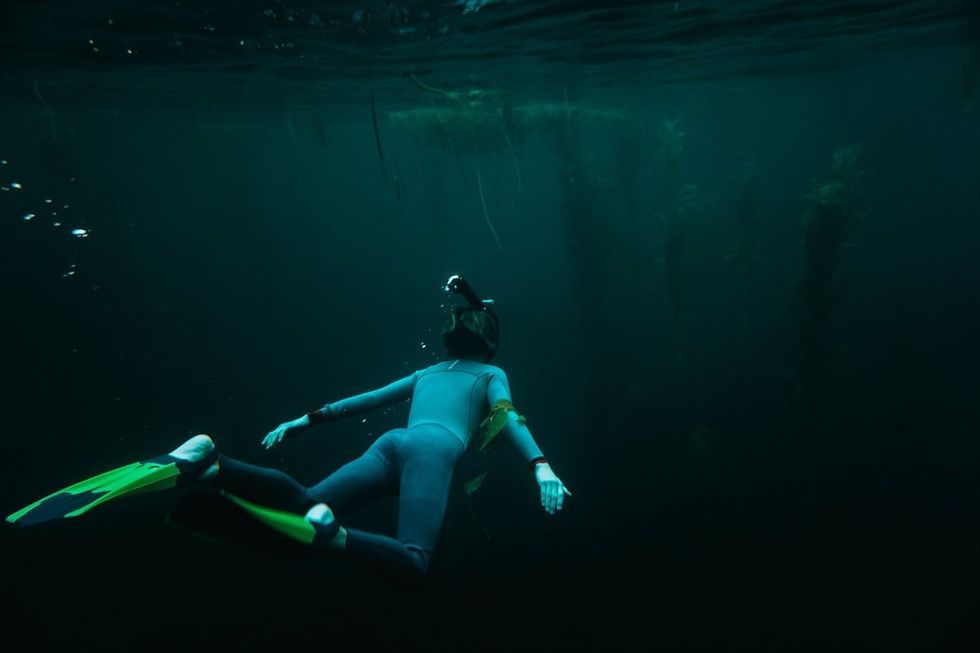 Scuba 101Unsplash
Scuba 101Unsplash
As explained by Arenal Diving, “SCUBA (stands for) Self Contained Underwater Breathing Apparatus.” Advanced divers can go as deep as 40m, but as a beginner, “Most courses limit the maximum depth of all dives to 18m until the diver has obtained further training and experience.”
Aside from the thrill of going deep, the things you’ll see under the sea will open your eyes. As Aquaworld puts it, “As soon as you submerge, (you) will access a whole new dimension filled with marine life and biodiversity overall. Bright coral reefs, flashy invertebrates, curious marine mammals and an unbelievable array of colorful fish.”
Not to mention how you’ll feel. Being underwater gives you the sensation of weightlessness. “A scuba diver exploring the ocean can be compared to an astronaut space-walking. Being able to control your buoyancy will give you a great comfort which enables you to freely dive,” notes Aquaworld.
No wonder scuba divers are always so eager to share their amazing adventures and dish about their dramatic dives!
You’ll Need to Get Certified
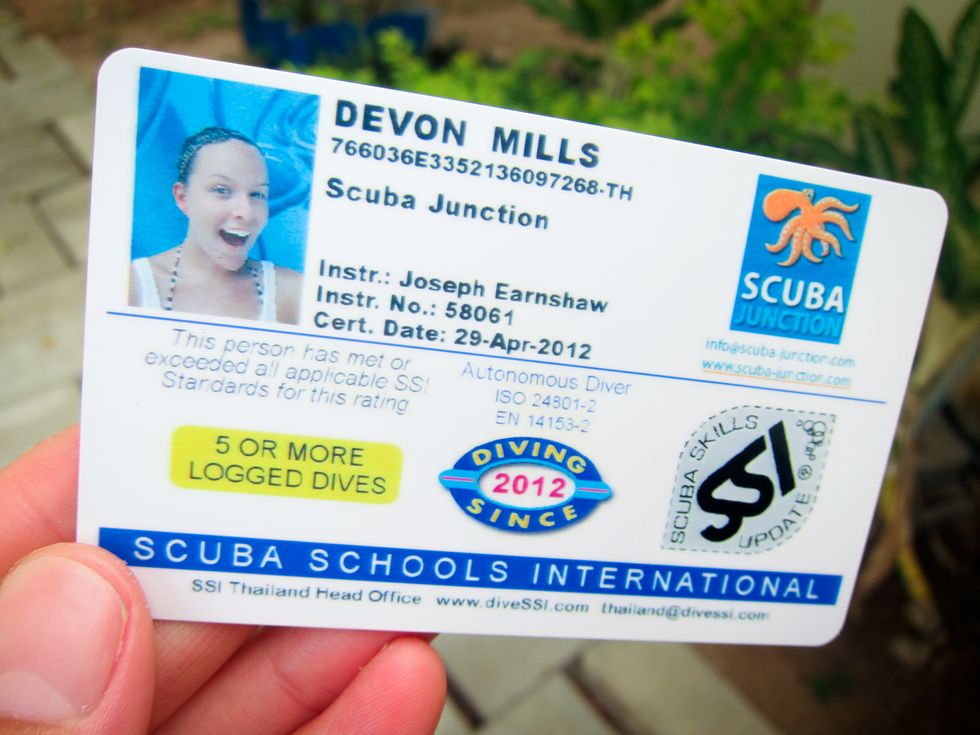 Get certifiedgetyourscubacertification.wordpress.com
Get certifiedgetyourscubacertification.wordpress.com
This activity is far from a “dive right in” sort of hobby. As fun as scuba diving is, you’ll need to learn the ropes to ensure you’re as prepared and safe as can be. Whether it’s a few classes, a full-on course, or a pre-dive brush-up demo, scuba education is not only useful, but required in any legitimate diving spot. You must be at least 12-years-old to begin scuba diver training.
As per the World Organization of Scuba Diving (WOSD), “Learning to scuba dive is quite easy. In principle, everyone can learn in 15-minutes how he or she needs to breathe and move underwater. However, being safe and responsible underwater needs some more time. To do this, you not only need the necessary knowledge. Also, you need to master various skills to ensure that you are no longer a danger to the underwater world, for other divers and for yourself.”
According to Fly & Sea Adventures, “In order to become a scuba diver, you will have to complete a short course and obtain a certificate.” The course consists of three parts – knowledge development, confined water dives, and open water dives. Fly & Sea Adventures adds, “Courses last a minimum of three days, but the practical sessions, confined dives and open water dives can be spread out over a few months.”
The more teaching and training, the better. Study up, practice, and prep as much as you can before your first outing and always continue educating yourself between dives. Follow these steps to take towards certification.
Get in Gear with the Appropriate Gear
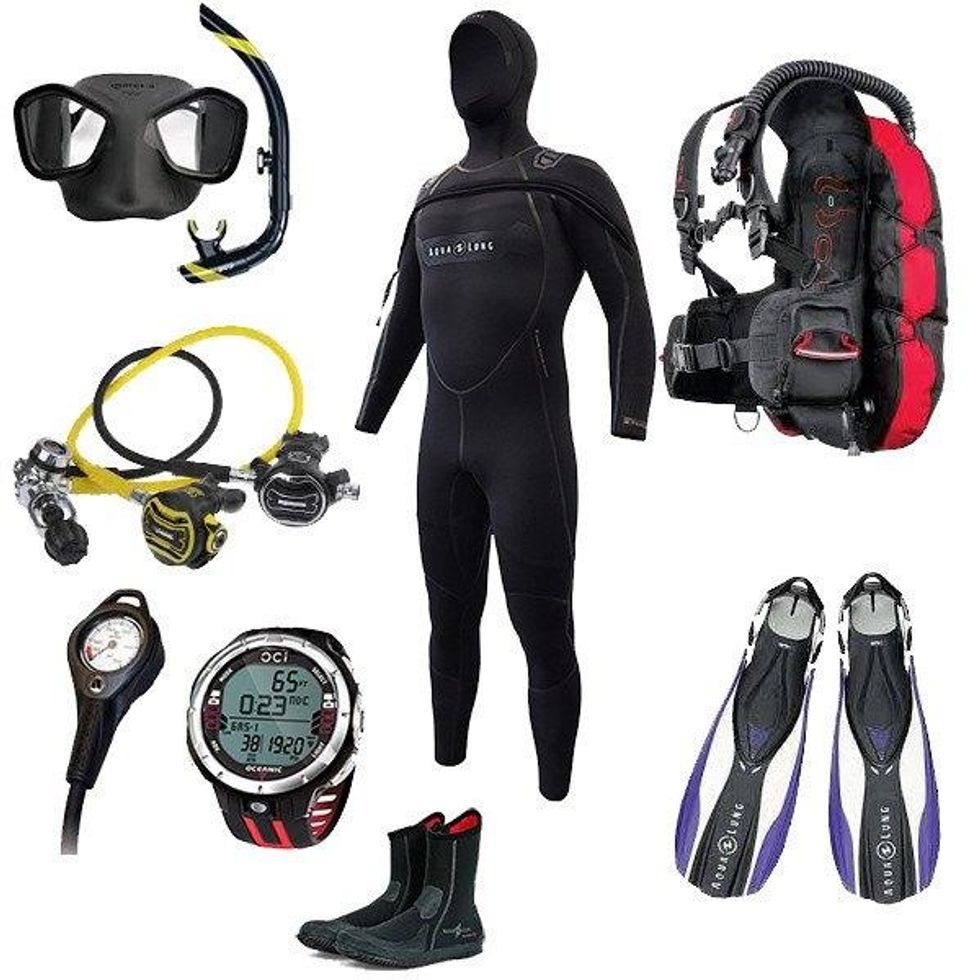 Scuba gearstore.ecdivers.com
Scuba gearstore.ecdivers.com
Scuba diving requires special gear that not only protects but provides underwater utility needed for deep sea swims. As Arenal Diving explains, “We have different equipment that we use to enable us to dive; masks allow us to see under the water, fins help us move around easily and the scuba unit allows us to breathe underwater. The air that we breathe is the same as the atmosphere (only cleaner and without humidity).”
According to Scuba Diving, “It’s helpful to think of buying gear in two phases: first, the basic stuff you need for class; second, the major pieces of life support — regulator, BC and dive computer — that you’re allowed to purchase once you’ve got a (certification).”
You’ll Need to be Aware of Your Body and Mind
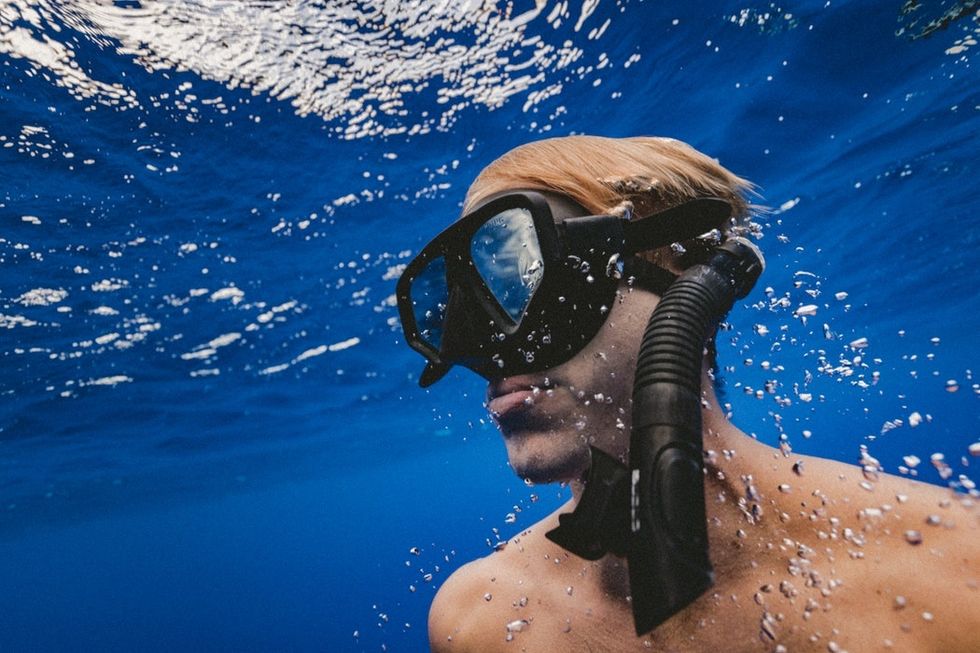 The “bends”Unsplash
The “bends”Unsplash
Scuba diving isn’t the same as swimming. You will need to realize you’ll be experiencing new and sometimes odd sensations and reactions to the different way of getting air while under the surface. Some people experience decompression syndromes AKA Caisson disease, commonly referred to as “the bends.”
“The bends” occurs in scuba divers or high altitude or aerospace events when dissolved gases (mainly nitrogen) come out of solution in bubbles and can affect just about any body area including joints, lung, heart, skin and brain. Decompression sickness (DCS) is caused by the formation of bubbles of gas that occur with changes in pressure during scuba diving,” as explained by emedicinehealth. Symptoms include fatigue, rashes, joint pain, itching, chest pain, difficulty breathing, dizziness, and others.
Emedicinehealth advises seeking medical care if you experience any of these symptoms within 48 hours of scuba diving. Doctors treat patients in a hyperbaric recompression chamber.
If you don’t feel mentally or physically prepared for such possibilities, rethink your drive to dive.
Buddy Up
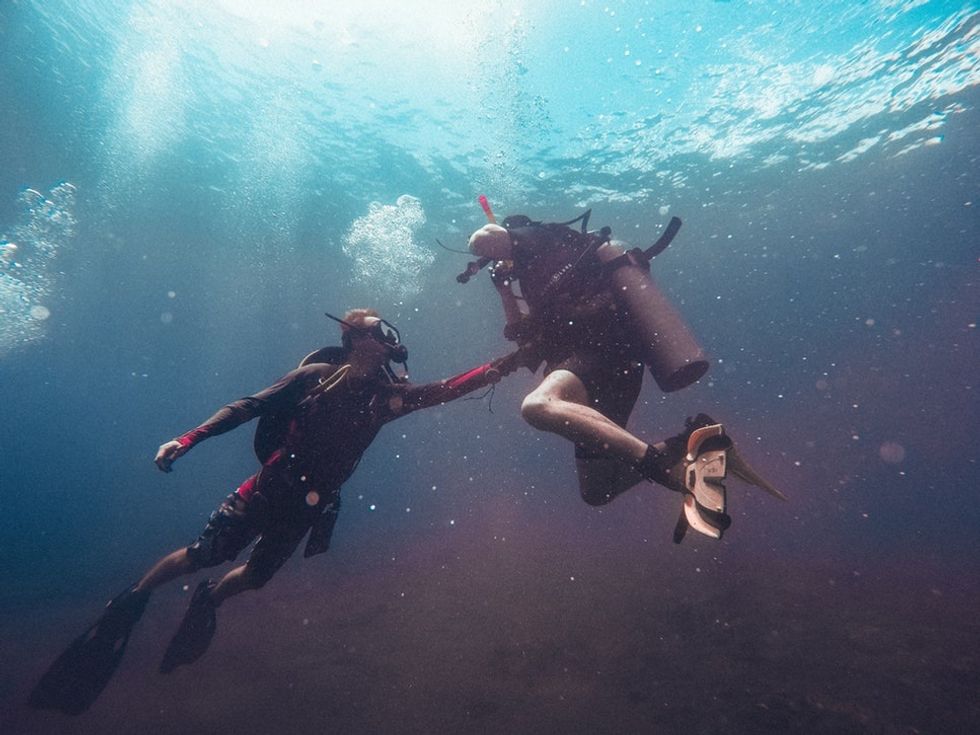 Get a scuba buddyUnsplash.com
Get a scuba buddyUnsplash.com
Find a friend, family member, or “special someone” to experience scuba diving with. Whether a beginner or a long-time scuba diver, sharing the moments and memories with someone as thrilled about the experience as you are is priceless.
Additionally, being with a buddy is an extra step towards safety. Going out into the ocean is always risky no matter how many precautionary measures you take. Knowing someone is accountable for your whereabouts and you for theirs adds another layer of security.
If you can’t find an adventure-seeking someone to scuba with, Aquaworld knows you won’t be lonely. “Diving is very social! You’ll meet a lot of new people in your adventures from all over the world with many different cultures and you will always have something to talk about with these new friends.”
You Must Love the Water
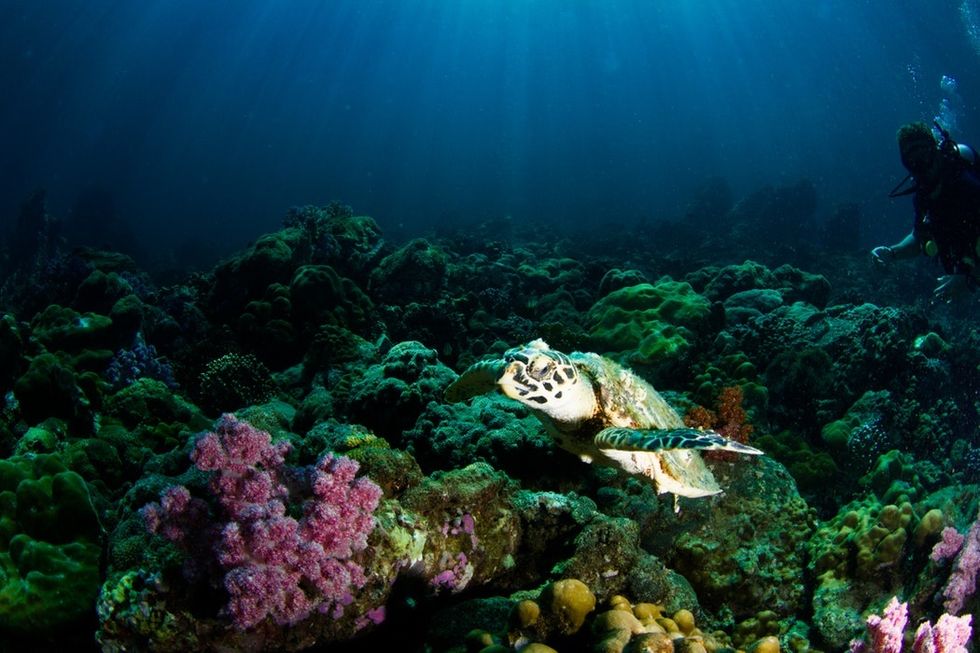 An underwater wonderlandUnsplash.com
An underwater wonderlandUnsplash.com
Any scuba diver knows how much time will be spent in the water. If you’re not into the whole “beach thing,” choosing scuba as an activity may be a letdown. But if you love the ocean air, blue waves, sunshine, and sand, scuba diving is your calling. You’ll be off dry land for extended periods of time, making your experience refreshing and rewarding. Even the training will involve lots of underwater education, so you must be willing to get wet!
And according to Andy Scuba Diving, even non-swimmers can get into scuba. “In over 10 years in the diving industry we have had plenty of experience with non-swimmers and even the occasional person who has a fear of water! It is not unusual that someone who is fearful of being in the sea still has a compelling urge to go scuba diving. It just proves what a powerful attraction our beautiful underwater world has.”


